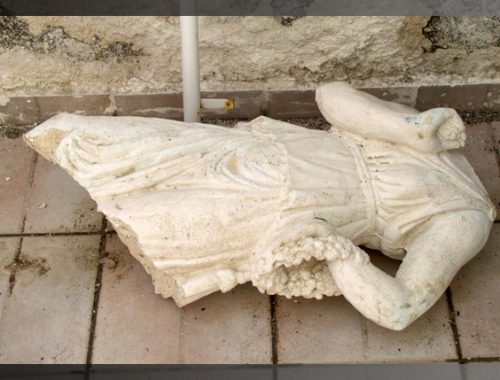
NOT REFORM BUT RETURN TO THE QURAN
LET US SET ISLAM FREE FROM THE MONOPOLY OF IDOLIZED MASTERS
Having cleansed Islam from alien elements and entrusted it to the sole exclusivity of the Quran, we must liberate Islam from the dominance of tabooed masters. Unless this is achieved, we cannot expect a rapprochement between the Sunni, and the Alawi, the Shii and the Hanafi, the Shafi and the Jafari. (We must make clear that we are Sunnis in the sense we are faithful to the Prophet, and Shiites and Alawis in the sense that we love Ali, the son-in-law of the Prophet. Yet, we are not concerned with the linguistic meanings of these, but rather with the sociological meanings they have assumed throughout history and the structural formations that have come about, full of elements alien to the Quran.)
67 – They will say: “Our Lord! We have obeyed our leaders and the elders, but they led us astray.”
33 The Parties, 67
The members of the Sunni branch of Islam must cease to dignify Abu Hanifa, Imam Shafi, Imam Maliki and Imam Hanbali. They must cease believing in such statements, as “Abu Hanifa was a great man; so great in fact that he had seen God in his dream 99 times.” Along with the aforementioned Imams, the traditionalists Bukhari, Muslim, Tirmizi, Abu Davud, etc. must clear the path that leads to the one truth, the truth of the Quran. The Shiites must cease to declare: “Our Imams are innocent, they never err” and rid themselves from powers assignable to the Prophet and the Quran. They must cease to believe in the existence of a source outside the Quran and of a religious leader other than the Prophet. They should know that to be a descendant of the Prophet does not mean he has holiness. The swerving from the straight path of Abraham’s father and of Lot’s wife is related in the Quran. Considering that someone related to a given prophet is liable to be doomed even during the lifetime of the prophet in question, ascribing superiority to a distant descendant of a prophet and, in so doing, being oblivious of the Book sent by God as a guide, a divine favor and a mercy (16 The Honey Bees, 89) is inconceivable. We must note that there is something that sects excel in: the skill of seeing through the faults of others. For instance, the Sunnis justifiably level criticism at the Shiites’ blind obedience to their imams, while they declare their own imams, Hanafi, Shafi, Hanbali and Maliki, blameless and forget that they live by their instructions rather than by the precepts of the Quran. While they perform a binding duty of the religion according to a given sect, the very act they perform quite often proves to be unlawful according to another sect, and while the religion sent by God is one and unique, the emerging result is a plurality of concepts and practices (ee Chapter 14 on sects).The eye that skillfully detects the idolization of imams happens to be blind at its similar practice; the eye seems to be unable to see itself. While it accuses the other of disagreement, it styles itself as the only accepted denomination. If you follow the sayings of particular individuals, what makes you different from your brother? The person whom we revere happens to be the wisest person, while the others are but separatists. What is the exact criterion according to which these people can be classified? Had you adopted the Quran as the only authority, you would not have sought other guides. Their controversies make them forget this truth.
Turn to the First Page of the Article
PAGE 2: THIS IS NOT A POPULIST MOVEMENT
PAGE 3: THERE WAS A TIME WHEN NO SECTS EXISTED
PAGE 5: RELIGIOSITY AND ATHEISTIC FANATICISM
You May Also Like

TRUE BELIEVER
6:28 pm
ANIMOSITY TOWARD THE ARTS, MUSIC AND CHESS
9:19 pm

